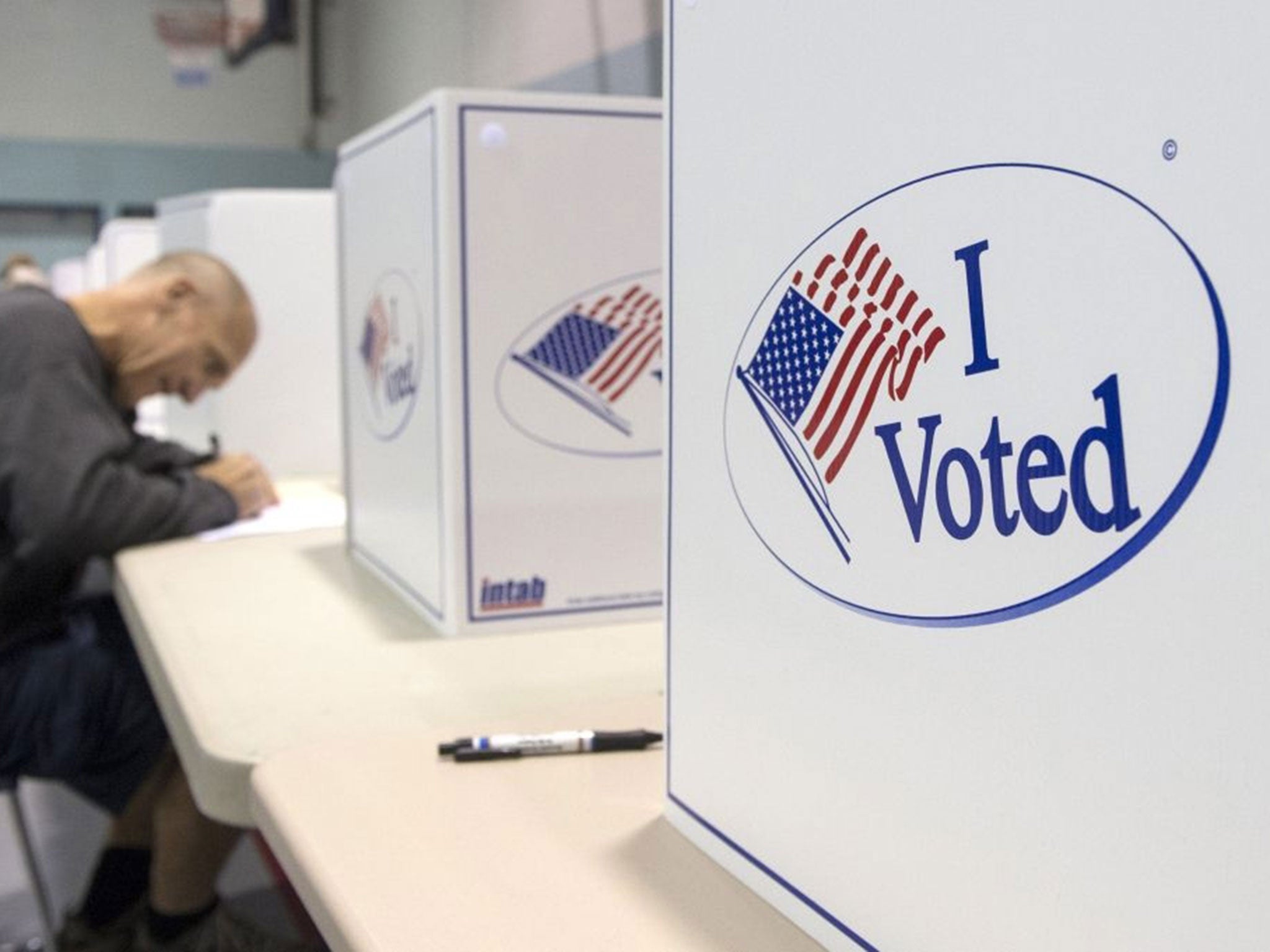US Midterm elections: 5 things we learned from the polls
The election results show voters are tired of Obama and the Democrats

Your support helps us to tell the story
From reproductive rights to climate change to Big Tech, The Independent is on the ground when the story is developing. Whether it's investigating the financials of Elon Musk's pro-Trump PAC or producing our latest documentary, 'The A Word', which shines a light on the American women fighting for reproductive rights, we know how important it is to parse out the facts from the messaging.
At such a critical moment in US history, we need reporters on the ground. Your donation allows us to keep sending journalists to speak to both sides of the story.
The Independent is trusted by Americans across the entire political spectrum. And unlike many other quality news outlets, we choose not to lock Americans out of our reporting and analysis with paywalls. We believe quality journalism should be available to everyone, paid for by those who can afford it.
Your support makes all the difference.The Republican Party have come away from the US midterm elections rubbing their hands with glee, having extended their majority in the House of Representatives and putting a series of Democratic-leaning states under control of Republican governors.
In a clear repudiation of President Obama, the Republicans easily won the 218 seats required to clinch the House. President Obama now faces likely battles with the Republican-controlled Congress in his final two years as Republicans regained control of the Senate.
Here are five things to take away from the midterms.
1. The Republican wave was even stronger than had been expected.
The Republican Party certainly stole the show on Tuesday, as they extended their majority in the House of Representatives and took control of a series of Democratic-leaning states.
Before the vote, polls suggested Republicans would pick up the six Senate seats they needed to regain control. In reality, they snatched away at least seven, giving them at least 52 seats of 100.
2. The Democrats were kidding themselves they’d hang on in key places.
In the early hours of Wednesday morning, one top Democrat rightly told the Guardian that the result for his or her party was “ugly”.
The Republicans took key seats from Democrats in Arkansas, Colorado, Iowa and North Carolina – with the latter being the seat which saw them claim the Senate majority.
3. There was a liberal wave on social issues – guns, pot, abortion, min wage – lives on (ballot initiatives).
A liberal wave rode alongside the Republican Wave, as voters approved ballot measures legalising cannabis in Oregon and Washington DC. In Colorado and North Dakota, voters rejected measures that opponents feared could lead to bans on abortion, CBS News reported. And luckily for workers in Arkansas and Nebraska, voters backed increases in their states' minimum wages. Following a shooting at a school in Washington State last month, Washington State voted for a measure to expand background checks on gun sales and transfers.
4. There were three big conservative winners: McConnell, Christie and Boehner.
Mitch McConnell, the longest serving senator in Kentucky’s history, cruised to victory last night and became Senate Majority Leader. Tonight, he and President Obama pledged to end political gridlock which has blighted the US politics and work together. Meanwhile, senior Republicans Chris Christie, chairman of the Republican Governors Association, likely enjoyed both his own win in New Jersey and those of his fellow party members. Not least, Speaker of the House of Representatives John Boehner, who retained his Ohio seat.
5. The bulwark of states that turned blue for Obama are reverting to red. Bad news for Hillary.
Republican Senator Rand Paul of Kentucky, a potential rival to Hillary Clinton in the 2016 presidential race, neatly summarised the former Secretary of State’s looming problem on CNN Wednesday morning.
“This was not only a repudiation of the president, but I think really a repudiation of Hillary Clinton,” he said. “Everybody thought, 'Oh, hey, I'm going to be a Clinton Democrat.' Turns out that's not so popular in a lot of states either.” Hillary had campaigned across 20 states for 10 Senate candidates. Only three won.
Join our commenting forum
Join thought-provoking conversations, follow other Independent readers and see their replies
Comments